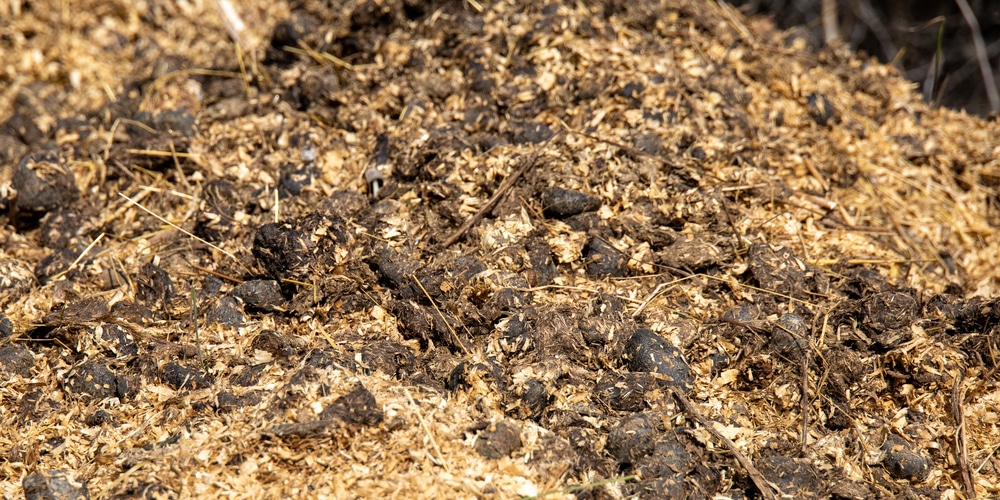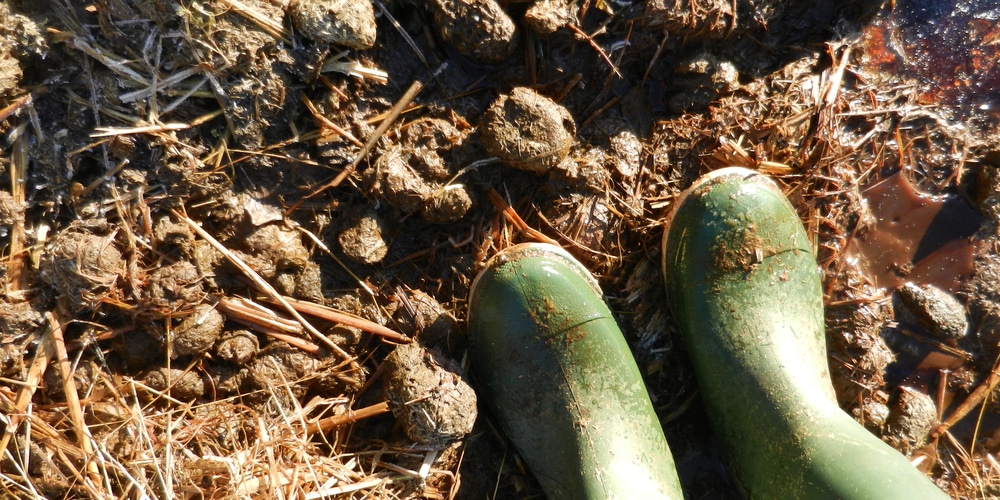Horse manure is a relative up-and-comer in the organic compost niche, although some swear by its use as a garden fertilizer.
So, does horse manure make good fertilizer? How can it be used in the yard or garden?
Horse Manure as Plant Fertilizer
Horse manure is a versatile organic material that can be used in a number of ways. Gardeners can use horse dung as mulch, as a soil amendment, and in the compost pile to accelerate the process.
When you think of manure and plants you’d normally assume them as natural fertilizers, and horse poop is no exception. Horse manure is rich in nitrogen (like its chicken and cow counterparts) and supports the growth of plants, particularly fruits and vegetables.
The truth is that horse manure makes good fertilizer, although you’ll have to do a bit of preparation first. It offers several beneficial characteristics for plants and growers alike, as horse manure is cheap, readily available, and doesn’t contain high concentrations of nitrogen to cause plant burn.
Benefits of Using Horse Manure as Fertilizer
Versatile
Horse manure is technically an organic material. Its texture is rather soft, which makes them pliable and combinable with other soil matter.
In gardening, horse dung is often added to the compost pile to infuse essential plant nutrients such as nitrogen, carbon, and others. Moreover, horse manure can be used as mulch or to amend pure garden soil. Since most plants need nitrogen they will benefit from having horse dung in their growing medium.
Horse manure as fertilizer works best in plants that have high nitrogen requirements, including leafy vegetables and brussels sprouts, garlic, and rhubarb, just to name a few.
Cost-Effective
If you’re considering horse manure for your garden, then you’ll find that it’s readily available in most garden centers and agricultural stores in your area. Compared to chicken and cow manure, horse dung is generally considered to be cheaper as well.
The ready availability means you’ll always have an organic source of fertilizer you can use on your plants and soil. Horse manure serves as an excellent soil amendment and compost material as well. It’s an all-around organic matter regardless of what you’re growing in your yard or garden.
Lower Nitrogen Concentration
Perhaps the greatest advantage horse dung has over its cow and chicken counterparts is that it contains a lower concentration of nitrogen. Lower isn’t necessarily inferior because too much of it can damage your plants’ roots and cause ‘fertilizer burn’.
Chicken manure tends to burn plants when directly applied, while horse manure has a lower chance of doing so. Horse manure also has other beneficial microbes and micro-nutrients that can support vigorous plant growth.
Thinking of Using Horse Manure as Fertilizer? Do This First
While horse manure can be used as garden fertilizer, you shouldn’t apply it fresh on your plants. The recommended method of feeding your garden using horse manure is to allow it to age and dry thoroughly, or as an ingredient in your compost bin.
Fresh horse manure can cause fertilizer burn in plants, and as such, you’ll have to wait for it to decompose. You can also add it to compost and make horse manure compost, which may consist of vegetable scraps, grass clippings, coffee ground, wood chips, and newspaper, among others.
Alternatively, you can just pile it up and let it sit for around three months until the manure breaks down and becomes softer. When in a compost heap, turn the material over every week for air circulation. It’s worth noting that heating the compost pile is a good idea as it kills weed seeds that could be hiding in the manure.
How to Use Horse Manure in Plants
Horse manure can be worked into the topsoil before planting. As part of compost, horse manure provides a gentle boost of nutrients for optimal growth.
The simplest and most direct way would be to add aged horse dung to soil and work it in. The organic matter also works as mulch- spread an inch or two around the plant so the soil and roots stay relatively moist. You can enrich the soil for your plants, grass, shrubs, and trees with it as well.
Horse dung is an excellent alternative to synthetic fertilizers, especially when it comes to growing fruits and vegetables.
However, it’s worth noting that too much manure in your garden is not a good thing- remember to apply it in moderation (like you would a fertilizer) and roughly only once or twice per growing season.
Related Article: Chicken Manure for Lawns


